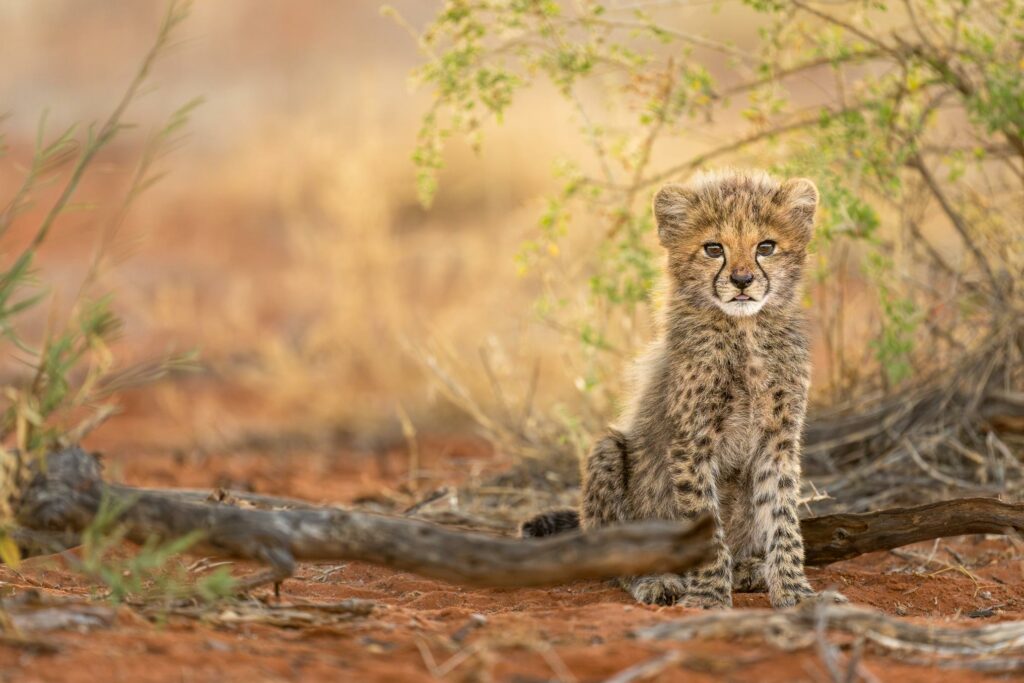TSWALU JOINS THE LONG RUN
As part of its commitment towards greater sustainability, Tswalu Kalahari has applied and successfully been accepted as a fellow member of the internationally recognised conservation organisation, The Long Run. In so doing, Tswalu has embarked on a journey of continuous improvement, committed to working towards best practice in sustainability in each of four categories, namely conservation, community, commerce and culture – referred to as the 4Cs.
The Long Run is recognised by the Global Sustainable Tourism Council (GSTC) as one of the world’s best standards of sustainable management for privately protected areas. United by a common goal to use business as a force for good, members strive to be pioneers in sustainability, committed to leveraging the power of their nature-based businesses for the health of the planet and the well-being of people. Collectively, members conserve over 21-million acres of biodiversity and improve the lives of 750,000 people.
Tswalu’s commitment to restore and conserve the Kalahari’s natural wilderness, while preserving and respecting the cultural and historical heritage of the region, is closely aligned to The Long Run’s vision to embrace the highest standards of sustainability in the areas of the aforementioned 4Cs.
In order to measure and improve on these sustainability goals, Tswalu has retained the services of an independent, highly experienced sustainability officer, Julie Cheetham. ‘As a fellow member, Tswalu is required to plan and work towards an authentic representation of the environment, people, history and culture of its destination. This will come through strongly as a unique sense of place and authentic guest experience – the embodiment of the Kalahari,’ explains Julie.
From the perspective of Tswalu’s CEO, Arnold Meyer, membership of The Long Run affords Tswalu a peer comparison. ‘There is great value in being part of a well-respected platform with a track record, and in being able to measure Tswalu’s progress in terms of the 4Cs of conservation, community, culture and commerce. The Long Run holds credibility within the conservation and ecotourism arena. We look forward to learning from other member properties, big or small, and being able to exchange experience and best practice with them.’
Tswalu is an ambitious, long-term conservation work-in-progress, informed by scientific research and supported by a low-impact, high-value model of eco-tourism. Its national and regional importance as a habitat was acknowledged in 2014 when it was designated as a formally protected area. Key conservation goals include the restoration of the natural environment, the reintroduction and protection of biological diversity, and maintenance of the Kalahari’s characteristic ecological processes.
Conservation decisions on the reserve are informed by research. The Tswalu Foundation was established to support and facilitate numerous research projects on the reserve, which continue to reveal fascinating aspects of the ecology.

Tswalu’s commitment to community includes an on-site healthcare centre, which is available free of charge to all, a pre-primary school for children who live on the property, and Adult Basic Education and Training (ABET) programmes to empower staff through improving literacy and formally recognising their skills and knowledge. A number of horticulture projects supply fresh produce to several kitchens on the reserve. Furthermore, the greater community benefits from a focused purchasing policy of ordering goods within a relatively tight local radius, always seeking out and supporting artisanal suppliers and small-scale producers.

Culturally, the many San engraving sites at Tswalu testify to the importance with which earlier inhabitants regarded the southern Kalahari, and there is on-going research into the early history of these archeologically significant sites. Honouring San culture was the inspiration behind Tswalu’s recently adopted logo, the petroglyph – a symbol of hope for the future.

Hand in hand with restoring and conserving the natural environment is the importance of empowering and unifying the diverse community that is at the heart of Tswalu. The Tswalu community consists of staff members and their families, researchers, visiting doctors that support the healthcare centre, visiting artists in residence, every single valued guest, the wider community of neighbours and conservationists, and everyone who is invested in the restoration of the Kalahari.
From the outset, Tswalu has taken a minimal-footprint, high-value approach to ecotourism – the reserve has the lowest guest footprint in South Africa – and revenue from The Motse camp and Tarkuni homestead flows directly back into conservation. Continuing the conservation work that is at the heart of this project has never been more important. Each guest who chooses Tswalu contributes to the sustainability of the commitment to preserve the southern Kalahari’s biodiversity for future generations.
‘Guests can be assured of a clear conscience, knowing that their travel choice makes a difference to the conservation of key species, biodiversity, cultural heritage and the development of under-served and marginalised communities in the remote Northern Cape province,’ says Julie. In future, she would like to see guests being able to offset the carbon footprint of their trip.
As a proud member of The Long Run, Tswalu is poised to enter a new decade of progress, aspiring to even higher levels of achievement in sustainability. ‘Belonging to The Long Run will highlight areas where Tswalu can improve, and begin a process of external evaluation where everything becomes measurable and everyone in the value chain can be held accountable and aspire to common goals,’ concludes Arnold.
Ultimately, Tswalu strives to be recognised as a Global Ecosphere Retreat (GER), a growing community within The Long Run that is not only committed to driving sustainability but is working on the front line of conservation in some of the most remote destinations across the planet.

